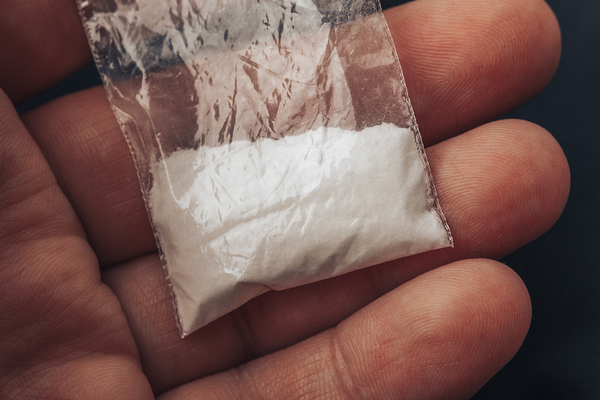
Cocaine may look harmless, but it’s far from it.
Cocaine may come with a short-term high, but it also brings along something else: the risk of long-term brain damage, which leads to addiction and other insidious effects as well. Here’s a closer look at how cocaine kills the brain via negative impacts, along with two particularly devastating brain-related consequences of its use.
Cocaine Kills the Brain
Cocaine works by increasing dopamine levels in the brain. While this “feel-good” chemical serves a positive purpose when dopamine occurs naturally, trouble ensues when cocaine enters the picture.
Explains the National Institute on Drug Abuse,
“Normally, the brain releases dopamine in these circuits in response to potential rewards, like the smell of good food. It then recycles back into the cell that released it, shutting off the signal between nerve cells. Cocaine prevents dopamine from recycling, causing excessive amounts to build up between nerve cells. This flood of dopamine ultimately disrupts normal brain communication and causes cocaine’s high.”
Over time, this leads to the rewiring of the brain, resulting in intense cravings—a problem that is compounded by the fact that these changes may occur after just one use, making it even harder for addicts to make healthy decisions.
The Cannibalism of Brain Cells
The more we learn about cocaine, the more we realize the full extent of its dangers. Consider recent research from Johns Hopkins revealing that high doses of cocaine trigger a phenomenon known as overactive autophagy, in which cells literally digest themselves. In healthy cells, this process serves a beneficial “cleanup” purpose. In cells exposed to cocaine, however, out-of-control autophagy leads to neuronal cell death, according to a study published in last year’s Proceedings of the National Academy of Sciences.
Explained Prasun Guha, Ph.D., postdoctoral fellow at Johns Hopkins and lead author of the paper, in a press release,
“A cell is like a household that is constantly generating trash. Autophagy is the housekeeper that takes out the trash—it’s usually a good thing. But cocaine makes the housekeeper throw away really important things, like mitochondria, which produce energy for the cell.”
Accelerated Brain Aging
In addition to leading to brain cell cannibalization, cocaine use has also been linked with another troubling outcome: Loss of gray matter in the brain, and the signs and symptoms that go along with it.
We all lose gray matter as we age. However, neuroscientists at the University of Cambridge have discovered that cocaine addiction causes adults to lose approximately twice as much gray matter as their healthy peers: 3.08 and 1.69 milliliters annually, respectively. In doing so, they are also potentially at risk for increased cognitive decline, including memory problems and dementia.
According to LiveScience,
“ Although it’s not possible to experiment on the human brain, animal studies suggest that cocaine-related brain atrophy may be related to oxidative stress, [researchers] said. Oxidative stress is caused by the production of unstable molecules called reactive oxygen species; when the body can’t remove these molecules or repair the damage they cause, disease can result.”
While we often think of drug abuse and addiction as the domain of the young, this study also highlights the number of older adults using cocaine. Study researcher Karen Ersche told LiveScience,
“We have a growing number of older people seeking treatment for drug problems. The Baby Boomer generation is a generation that has used more drugs than any generation before them, so they actually may suffer from an accelerated aging process, and we need to take this into account when we provide treatment.”
The takeaway for addicts and people who love them? Cocaine not only takes a significant toll on the brain but is also uniquely challenging to treat. Clinical treatment is typically a necessary component in cocaine addiction recovery and preventing relapse.
We’re Here to Help
Contact us at Harris House today to learn more about our addiction recovery programs in St. Louis.







